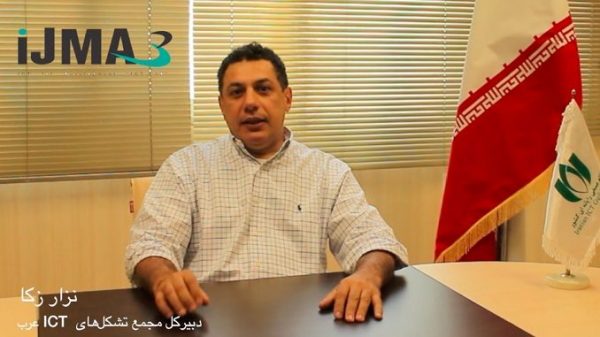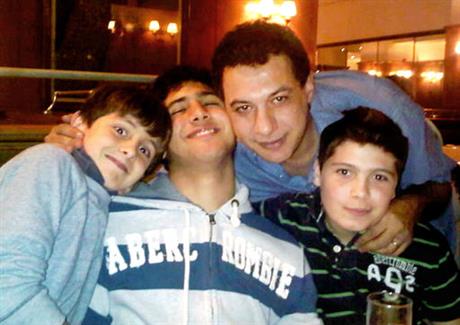
Lebanon General Security chief Maj. Gen. Abbas Ibrahim has paid a visit to the jail of Iran’s Lebanese guest Nizar Zakka who was invited and arrested , National News Agency said on Tuesday.
LBCI television meanwhile reported that Ibrahim “checked up on Zakka’s situation and was told he is in good health.”
Ibrahim later confirmed to al-Jadeed TV that “efforts have started with the Iranian authorities to secure the release of Nizar Zakka.”
Zakka, a Lebanese businessman and information technology expert who holds US permanent residence, was snatched in September 2015 by Iranian authorities on his way to the airport. He was sentenced to ten years in prison for spying for the United States.
Amnesty International has said Zakka had only two court hearings before the ruling and received only limited legal assistance. The closed-door tribunal handles cases involving alleged attempts to overthrow the government.
The court that sentenced Zakka bypassed common judicial procedures and, despite this, was only able to accuse him of contacting the US government, which, in their book, was another word for espionage.
Zakka, who had made a very successful career for himself in Washington, where his family and children live, found his world turned upside down, accused of a crime he did not commit and caught up in a game he did not wish to play.
Much of the effort to secure Zakka’s release has been spearheaded by his family in Lebanon and the United States. Despite their ardent public and private appeals, the Lebanese government had until now taken no concrete actions, denying Zakka the basic rights accorded him as a Lebanese national.
The Lebanese Embassy in Tehran has refrained from offering assistance to Zakka or dispatched any consular staff to follow up on the case or even to sign legal papers allowing his family access to the required funds to support his cause.
Nadim Zakka, Nizar’s son, voiced frustration at what he saw as the silence of the Lebanese political establishment, which he said has been intimidated by the presence of Iran-aligned Hezbollah among them.
“Iran kidnapped my father based on false and misleading information, probably coming from some of their partners in Lebanon,” Nadim Zakka said. “By the time they realised their mistake, they were caught in a catch-22 since they couldn’t release and admit they had kidnapped and taken hostage an innocent Lebanese who has never belonged to any political party anywhere in the world, which obviously includes Lebanon.”
Zakka, who lived in Washington and held resident status in the U.S., was the leader of the Arab ICT Organization, or IJMA3, an industry consortium from 13 countries that advocates for information technology in the region. Zakka disappeared Sept. 18, 2015, during his fifth trip to Iran. He had been invited to attend a conference at which President Hassan Rouhani spoke of providing more economic opportunities for women and sustainable development.

Ironically, Zakka had made the trip to Tehran on an invitation from Shahindokht Molaverdi, Iran’s vice-president for women and family affairs, to be a keynote speaker at a conference on women’s entrepreneurship.
All cultures place great emphasis on honouring guests and extending protection and hospitality. For the Arabs, a guest is a virtual extension of one’s pride and honour and, by custom, any guest is entitled to room and board, even before the host asks for a name and destination.
Equally, in the Persian culture, a proverb warns of the ominous fate of anyone who harms their visitor: “The Earth is a host who kills his guests.”
Unfortunately, that spirit doesn’t seem to stretch as far as Iran’s regime, which, since its inception in 1979, has mistreated guests and included hostage-taking as part of its foreign policy. In the public consciousness, people think such acts as restricted to the US Embassy hostages of 1979. However, Iranian prisons house a wide array of multinational prisoners and, among them, is Lebanon’s Nizar Zakka.

Leave a Reply
You must be logged in to post a comment.